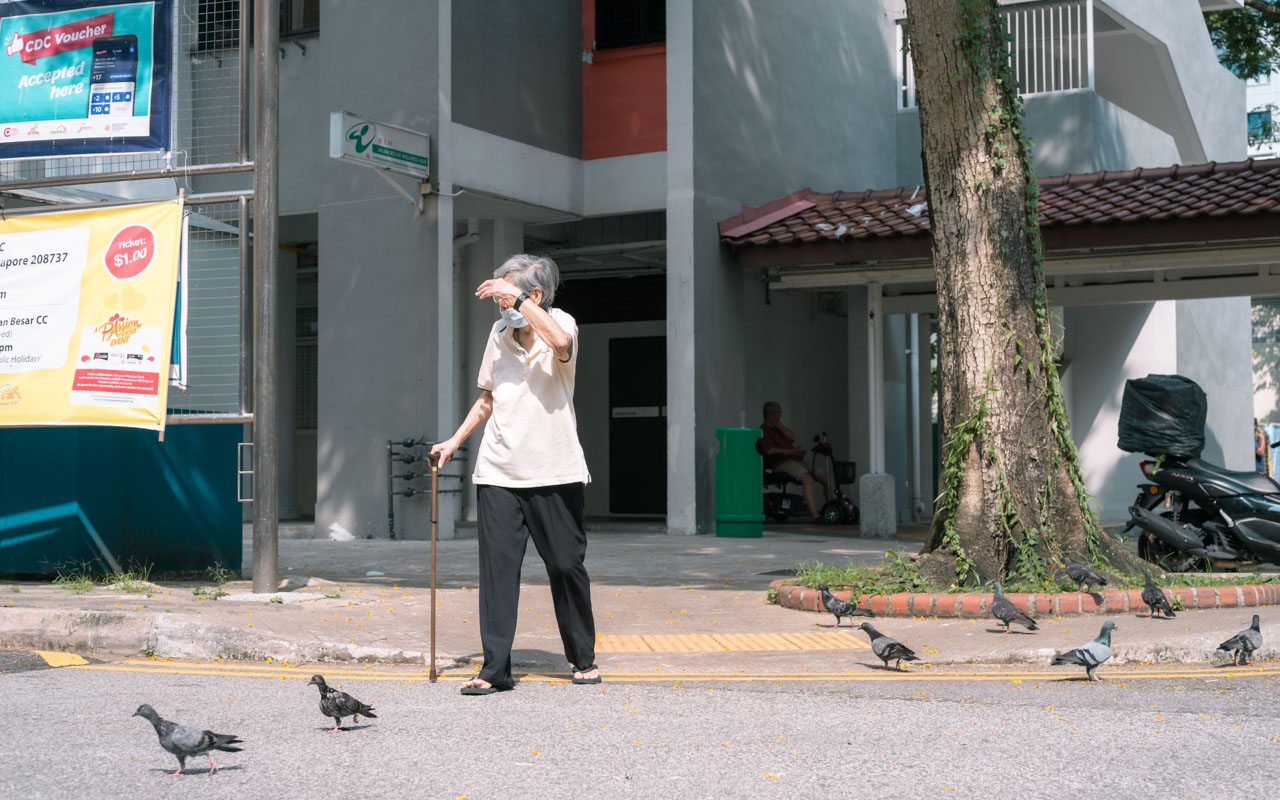Top image: Stephanie Lee / RICE file photo
A rather spicy headline popped up on my Twitter feed a few weeks ago.
ADVERTISEMENT
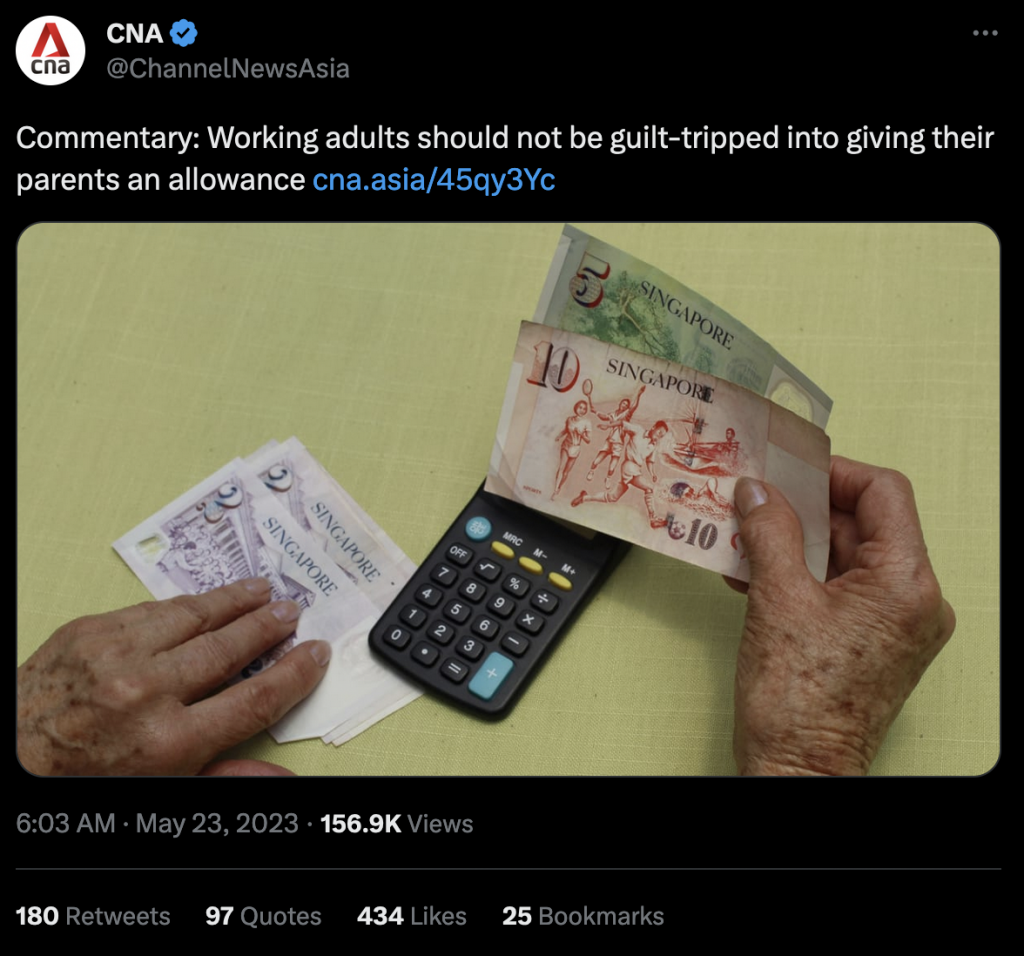
The commentary—or maybe just the title CNA editors chose to post it under—drew strong reactions:
‘Strawberry’ generation more useless than charsiew

Those who grew up in Chinese families would be familiar with this phrase, alongside “you better study hard, or you’ll become a road sweeper”.
I didn’t ask to be born!

Am I reading from my teenage diary? This sentiment—which embarrassingly transports me back to 2013—was also echoed by some uncle-type commenters, including one who wrote sagely, “if you need returns, go to the bank instead.”
ADVERTISEMENT
Harlow, Maintenance of Parents Act?

Fair point. If parents shouldn’t ‘guilt-trip’ their children into providing for them, one may point out, why do we have what seems like an institutionalised mechanism to enforce it legally?
Is Parenthood Just An Insurance Plan?
All this seems to boil down to the question: What do children owe their parents?
One common sentiment expressed in the comments was that it was not unreasonable for parents to expect ‘something in return’ for their years of care and financial investment in their children’s education. Most comments put this ‘something in return’ at around 10 to 20 percent of one’s take-home salary.
From this point of view, it seems selfish and mercenary for children not to hold up their end of the often unspoken social contract between parent and child.
On the other end, one could argue that children did not—and cannot—voluntarily enter this social contract since no one asks to be born. I knew my 13-year-old self was onto something.
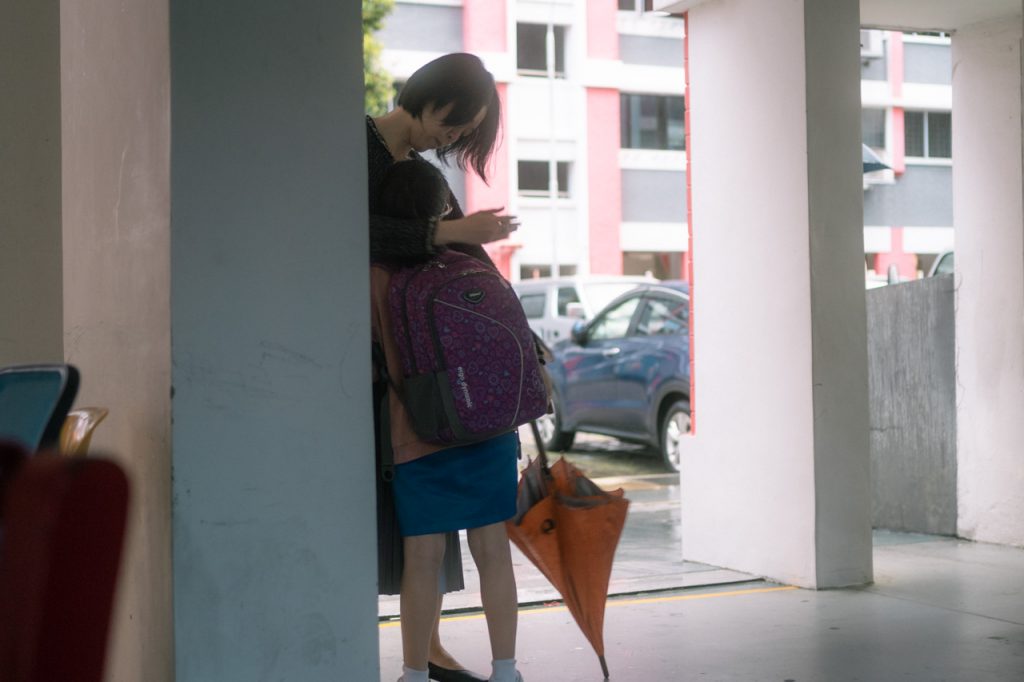
At the same time, such practical (or mercenary) talk of money seems to go against our idea of familial love.
ADVERTISEMENT
In the CNA commentary that sparked this discussion, Dawn Cher, a personal finance blogger, argues that it might be time to update the concept of ‘filial piety—which she associates with the ‘traditional’ authoritarian family dynamic—with ‘filial love’.
Dawn shared that when she got her first job out of university, her parents asked for a monthly allowance that was a large cut of her paycheck from her first job.
At the time, they were much more financially stable than her as she was still paying off her student loans and even teaching tuition in addition to having a full-time job. She stopped receiving an allowance from her parents after turning 18 and supported herself financially throughout university, making the situation feel unfair and souring their relationship.
If we look at history, giving an allowance to one’s elderly parents, who were usually less educated and worked in lower-paying jobs back then, was simply a matter of practical necessity.
As Singapore became urbanised, access to livelihoods such as semi-subsistence farming was removed. Those with low lifetime incomes had to depend on their kids to survive as the costs of living rose.
Clearly, it looks different today. Current generations of parents are likely to be more affluent than their predecessors, while younger generations face the pressures of hustling and finding their footing in an expensive and ultra-competitive city. The default that children owe their parents an allowance may not be as applicable anymore.
In her commentary, Dawn suggests that parents should leave it up to their children to decide whether or not to give their parents an allowance. ‘Filial love’ is “expressed freely, not when coerced”.
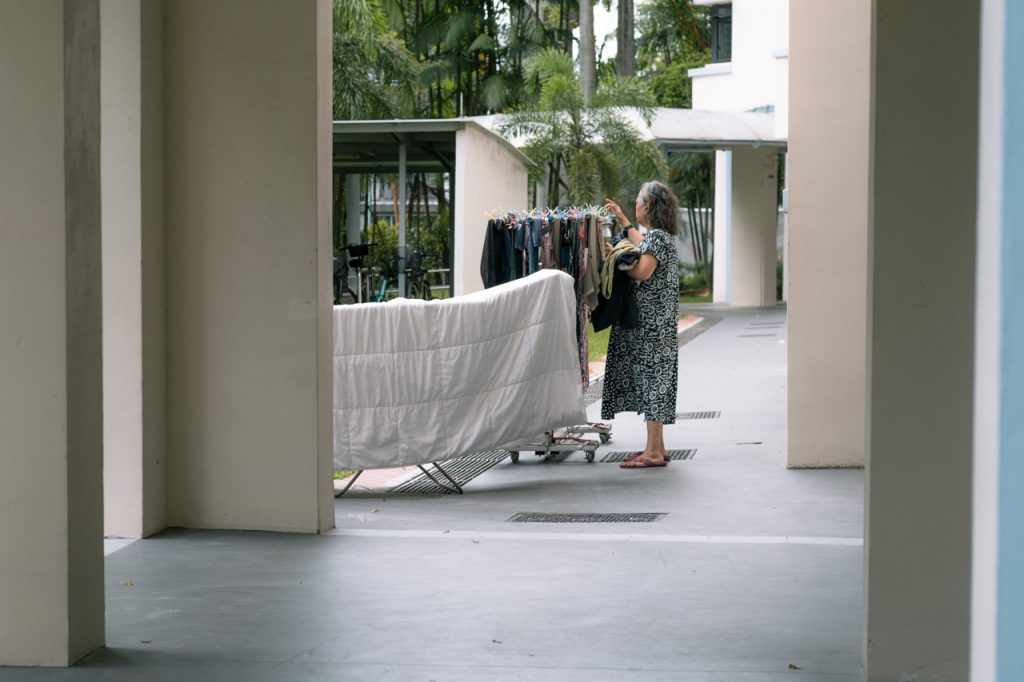
Is It About Control?
Dawn’s story, where money was used to ‘guilt-trip’ or otherwise unequal relationships between parents, struck a chord with me. I imagine it’s the same for many readers with a ‘my house, my rules’ upbringing.
Several years ago, I had been split about my choice of university course. Panicked at the thought of spending four years in a course I had no interest in (but something my parents approved of), I considered changing my choice of major in my application forms.
When I told my parents about it, I received a long lecture about the potential employability of the major I was interested in. But what dealt a heavy blow was their almost offhand remark that they would not financially support me if I embarked on that course.
While this is common enough for students who fund their own university education, my parents had assured me that I could tap into their CPF savings to fund my school fees.
I felt nowhere near financially ready to fund four years at university myself, which I had planned to pay back after I started working full-time. Feeling like I had suddenly been marooned out at sea, I let the hours left to the deadline pass by without changing my application.
Of course, the end of my story was much less dramatic than that. After enduring a torturous semester, I changed course without much fanfare— apart from a dark warning from my parents that I would have to be accountable for my own actions.
What annoyed me, however, was a comment that they “never pointed a gun to my head” to force me to choose the course I hated. In that emotional moment just hours before the application deadline, their sudden remark about withdrawing financial support felt like they did.
The takeaway? With every healthy relationship, there needs to be a level of mutual respect. This can only happen when parents see their children as adults who have equal power in their relationship.
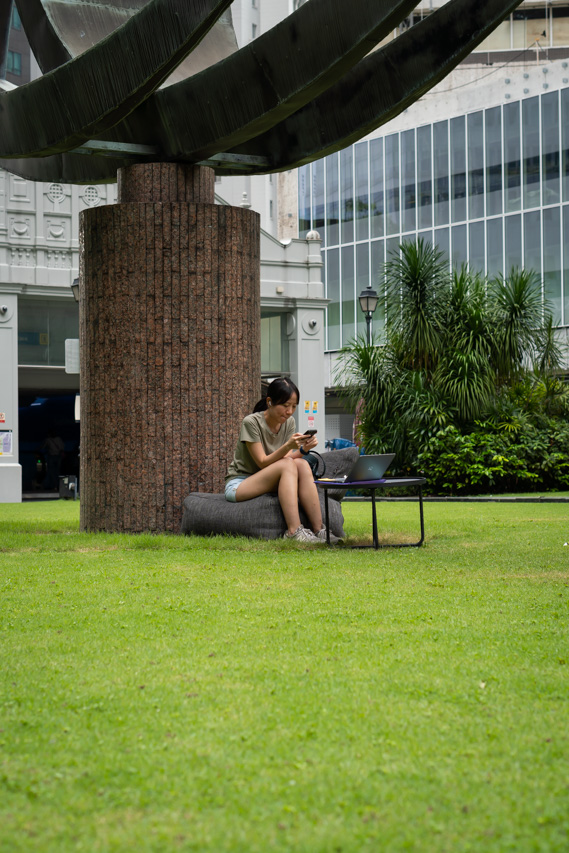
When Dawn’s parents did not consider their daughter’s needs and financial situation, it seemed like they were trying to enforce an authoritative hierarchy between parent and child in her adult years.
From what I’ve heard from peers, parental behaviour is often less about money and more about control.
For instance, reducing financial reliance on their parents from a young age is a strategy some people use to avoid letting their parents use money to ‘guilt-trip’ them. Yet, I’ve also seen some parents react negatively to this, seeing early financial independence as an insult.
Filial Piety Does Not Have To Be Authoritarian
It’s easy to blame this financial aspect of filial piety as just another element of ‘toxic’ Asian culture and for discussions to devolve into an East vs West culturalist dichotomy.
The fact is that the issue of giving parents an allowance cannot be separated from how our society organises care.
The rise of ‘filial piety’, alongside the revival of ‘Asian values’ in the 1980s, was partly driven by the government’s fears about increasing welfare expenditure. As sociologist Chua Beng Huat wrote in 1995, filial piety “serves as an ideological justification for the government not to be directly involved in social policies regarding the care of the aged, thus conserving resources for economic growth.”
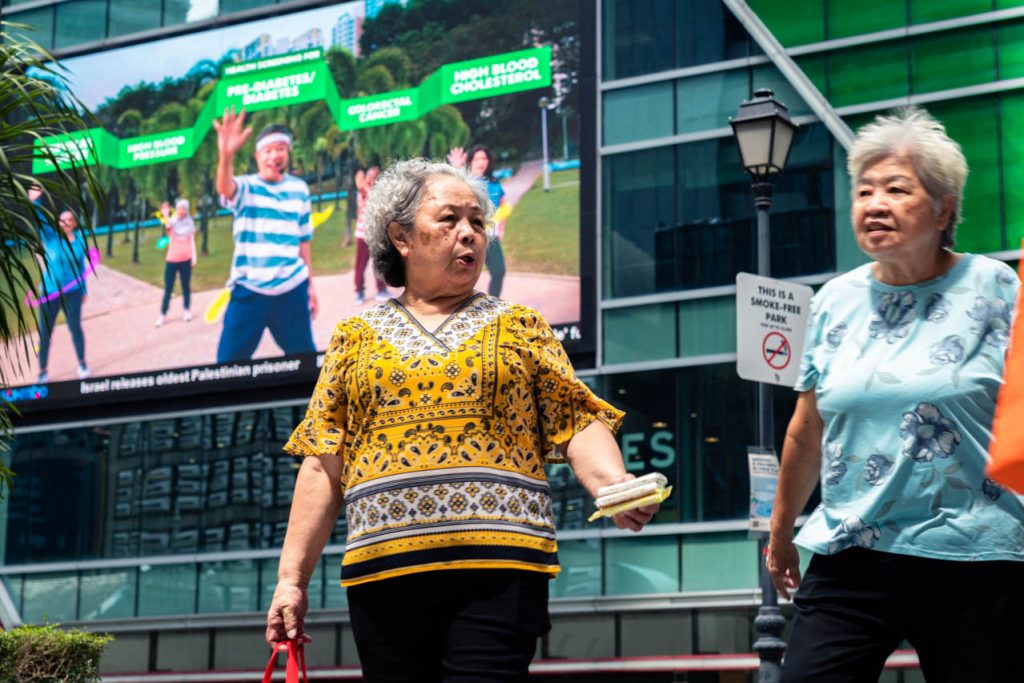
In this East vs West discourse, ‘Westernisation’ became “a convenient holder of all the ills of capitalist developments in Singapore”.
The government’s prescription? The Confucian concept of filial piety—urging children to take care of the welfare of their elderly parents who can’t support themselves.
Most of us do feel some kind of obligation to care for our family members. And I don’t think this makes us brainwashed by a supposedly toxic culture of filial piety. It simply means we’re human.
But given the reality that our society is currently structured so that children are their parent’s main safety net, this may make it easy to slip into defining others’ relations to us in economic terms.
No one likes being reduced to a means to an end—whether it’s children who feel their parents treat them like a retirement plan or parents who fear being treated like an ATM machine only to be discarded by their now-independent children.
But our fear of being used in mercenary ways by others cannot be solved by doubling down on controlling behaviour.
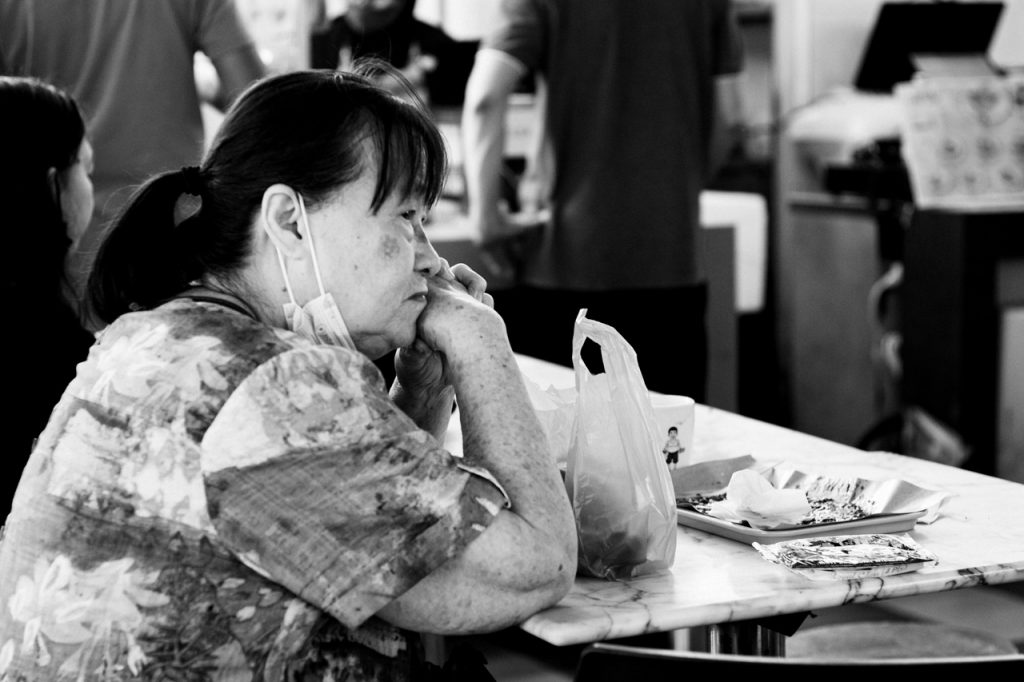
What If We Want (or Have) To Give Our Parents an Allowance?
Unfortunately, this also leads us to why, for most of us, Dawn’s suggestion—that giving an allowance should be an issue of ‘free choice’—cannot work for everyone.
Many of us want to give our parents an allowance, not because we are brainwashed, but because we care for their wellbeing. And how many of us would be comfortable not supporting them financially if they were unable to retire on their own with medical expenses or illness?
In this case, it may not be the act of giving an allowance that we resent, but the general situation where the additional financial burden holds us back from fulfilling our personal needs and ambitions.
And giving one’s parents an allowance is one of the less intense forms of care we may have to provide our parents. It’s a tougher situation for caregivers.
A recent Duke-NUS study has found that more than one in four caregivers reported having depressive symptoms. Yet, many caregivers do not receive enough support, with the same study finding that less than 30 percent of caregivers who work full-time have access to eldercare leave.
One famous concept from Confucianism that is often echoed in policies here is that families are the basic building blocks of society. But what does it say about our society that we have to create laws to enforce children to provide for their parents?
Whether or not giving one’s parents an allowance is about what we owe each other; this cannot be answered simply on an individual level.
And definitely not through parents treating their adult children as retirement plans.

